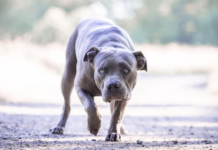Last Updated on August 14, 2023 by Fumipets
Nurturing Healthy Skin: A Guide to Managing Dog Dry Skin
Dog dry skin refers to a condition in which a dog’s skin becomes dry, flaky, and sometimes itchy. It can result from various factors, including environmental conditions, allergies, improper grooming, dietary issues, and underlying health problems.
Dry skin in dogs can lead to discomfort and even secondary complications if left untreated. Proper diagnosis by a veterinarian is essential to determine the underlying cause and provide appropriate treatment, which may involve changes in diet, skincare routines, and the use of moisturizing products.
Dog Dry Skin
Dogs are sometimes susceptible to the seasonal dangers of dry skin, just as people are. During the winter or when exposed to a lot of wind or dry air, this often occurs. There is no need for concern if dry skin is just accompanied by slight itching and flaking, but further symptoms or indications of pain might point to a more severe condition.
While there are many possible causes of your dog’s dry skin, some of them are simple to address while others are more difficult.
Reasons Why Your Dog Has Dry Skin
Dry Air
Low air humidity is the most frequent cause of routine dry skin. In order to keep its suppleness and durability, your dog’s skin requires moisture, which may be lost in very dry air.
Try using a humidifier in your house if you find that your dog has moderate itching and some skin peeling throughout the winter or if you live in an area with a dry environment. The skin of your dog might get very dry when exposed to forced-air heat. You and your human family members can all be more comfy by using a humidifier!
Nutritional Needs
Dry skin in dogs may also result from nutritional deficits. There may not be enough fatty acids in your dog’s food to maintain healthy skin. Verify the AAFCO Statement on your dog’s food to ensure that the necessary steps have been taken to ensure that it provides all the nutrients your dog need.
If you give your dog a homemade diet, see a veterinary nutritionist develop a recipe that fully satisfies all of his requirements; never rely on recipes you find online.
Omega-3 and omega-6 fatty acid supplementation is very beneficial for the health of the skin and coat in many situations of dry skin. There are liquid and pill versions of these vitamins. Select a supplement that has been endorsed by your veterinarian or the National Animal Supplement Council.
Too Many Baths
Bathing dogs too regularly is another factor in dry skin in dogs. The essential oils on your dog’s skin may be stripped away as a result, leaving it vulnerable and dry. Most dogs only need to be bathed occasionally, often twice a year.
Check with your veterinarian to discover whether your dog has a skin problem that is producing the symptoms you’re experiencing if you find yourself washing your dog more regularly because of odor or grease buildup.
Most dogs may use shampoos on an oatmeal basis, which are excellent for calming dry skin. After a bath, always make sure to properly rinse your dog to get rid of any shampoo residue.

Parasites and Illnesses
Dog parasites may result in a variety of major health issues for your dog. The following are a few typical skin disorders brought on by creepy crawlies:
- Seborrheic dermatitis
- Ringworm
- Demodectic mange
- Cheyletiella mange
More severe chronic health disorders including food and environmental allergies, Cushing’s disease, and hypothyroidism, in addition to parasites, may also cause your dog’s skin to become dry. However, in addition to dry skin, all of these disorders often come with other signs and symptoms.
If your dog has hair loss, pustules, scabs, open sores, oily skin, excessive dandruff, itching, licking his paws, ear infections, lethargy, weight gain, vomiting, or diarrhea, have him checked out by a vet. Both dry skin and the underlying problem will need treatment.
Home Remedies for Dry Skin in Dogs
There are several home treatments you may attempt to treat your dog’s dry skin if he is not showing any other symptoms of sickness or pain, so long as you don’t need to make an appointment with the doctor.
To tackle the issue of dry air in your house, use a humidifier. Additionally, you’ll feel better about your own dry skin as a result!
Start your dog on a dose of omega-3 and omega-6 fatty acids to improve the health of his skin and hair. Not all supplements are created equal since they are not subject to the same degree of regulation as pharmaceuticals.
Choose a product that bears the National Animal Supplement Council Quality Seal or is suggested by your veterinarian for the greatest results.
After thorough rinsing, give him a bath and use an oatmeal-based shampoo. As a colloid, oatmeal is soothing to the skin. For dry skin, some owners have found luck using coconut oil on their dog’s coat and skin.
Make an appointment with your veterinarian to ensure that something else isn’t causing your dog’s skin problems if you discover that you need to repeat any of these cures regularly or if they don’t work.
Questions and Answers:
What is dog dry skin?
Dog dry skin is a condition where a dog’s skin becomes dry, flaky, and sometimes itchy due to various causes.
What can cause dry skin in dogs?
Dry skin in dogs can be caused by factors such as environmental conditions, allergies, poor grooming, dietary issues, and underlying health conditions.
Why is addressing dry skin important for dogs?
Dry skin can cause discomfort for dogs and may lead to secondary complications like infections if not treated promptly.
How can a veterinarian diagnose the cause of a dog’s dry skin?
A veterinarian can perform a thorough examination, take a medical history, and conduct tests like skin scrapings or allergy tests to determine the underlying cause of dry skin.
What are potential treatments for dog dry skin?
Treatments may include dietary adjustments, using appropriate shampoos and moisturizers, managing allergies, and addressing any underlying health issues contributing to dry skin.
Remember that individual dogs may have different sensitivities and needs, so consulting a veterinarian is crucial for accurate diagnosis and tailored treatment for your dog’s dry skin.
https://www.youtube.com/watch?v=8Pg4y3jvLuU


















